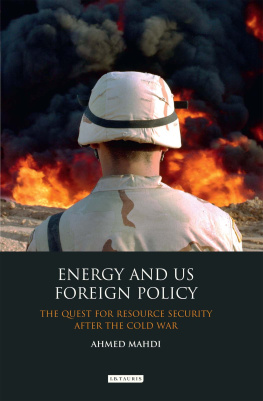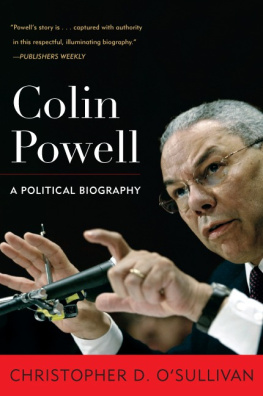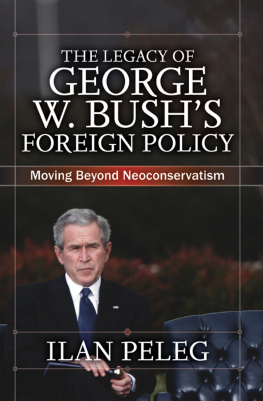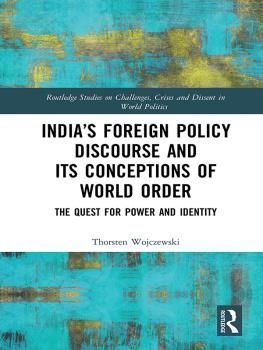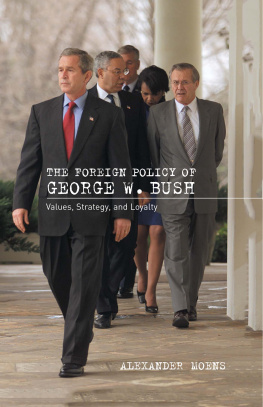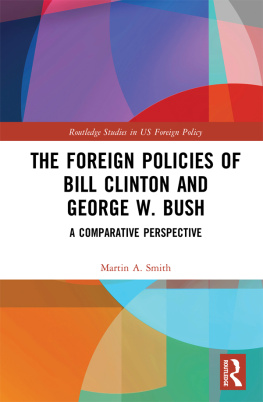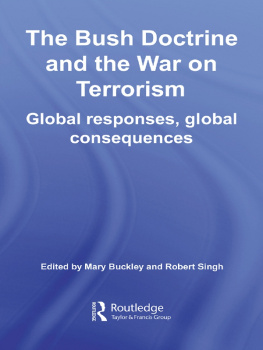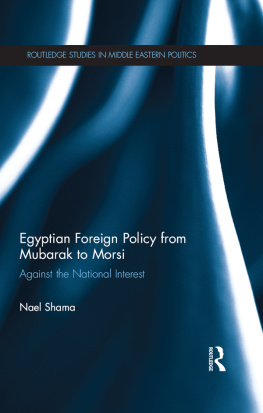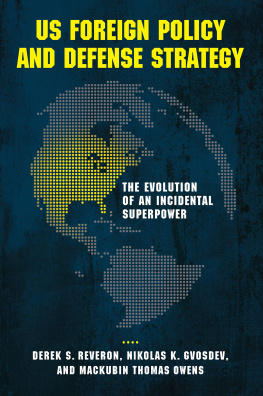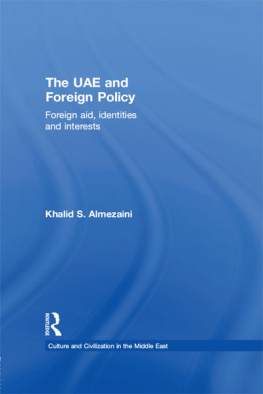Published in 2012 by I.B. Tauris & Co Ltd
6 Salem Road, London W2 4BU
175 Fifth Avenue, New York NY 10010
www.ibtauris.com
Distributed in the United States and Canada
Exclusively by Palgrave Macmillan
175 Fifth Avenue, New York NY 10010
Copyright 2012 Ahmed Mahdi
The right of Ahmed Mahdi to be identified as the author of this work has been asserted by the author in accordance with the Copyright, Designs and Patent Act 1988.
All rights reserved. Except for brief quotations in a review, this book, or any part thereof, may not be reproduced, stored in or introduced into a retrieval system, or transmitted, in any form or by any means, electronic, mechanical, photocopying, recording or otherwise, without the prior written permission of the publisher.
International Library of Security Studies vol.3
ISBN 978 1 84885 776 6
eISBN 978 0 85773 068 8
A full CIP record for this book is available from the British Library
A full CIP record for this book is available from the Library of Congress
Library of Congress catalog card: available
Typeset by Newgen Publishers, Chennai
ACKNOWLEDGEMENTS
As this book is based on my PhD, which I finished at the University of Birmingham, UK, in 2010, I would like to thank my PhD supervisor, Professor William Scott Lucas, for his keen supervision and insightful feedback. He has been very patient and understanding with me, giving me advice on sources, and encouraging me to develop my own ideas and reflections. I also thank him for arranging for me to give presentations at seminars and conferences based on my thesis and for supporting my essays and publications. I would also like to thank my examiners, Dr. Trevor McCrisken of the University of Warwick, and Dr. Steve Hewitt of the University of Birmingham, for providing me with important insights on how to improve my work.
I would also like to thank a number of other scholars for their comments on my work, including Professor Robert Lieber of Georgetown University, author Jim Bovard, and Dr. Robert Crane, former advisor to Richard M. Nixon.
I would like to thank my editors at I.B. Tauris, Maria Marsh and Tomasz Hoskins, for patiently helping me with my manuscript. I would like to thank Allison McKechnie for her editing work.
Finally, I would like to thank my parents. I thank my father, who has been financially supporting me well beyond his retirement age. And I thank my mother, who has given me the psychological support which I needed during my stay in Britain.
INTRODUCTION
I think that in the modern world, if you dont understand the relationship between economics and politics, you cannot be a great statesman. You cannot do it with foreign policy and security knowledge alone.
Henry Kissinger, April 1986.
The national policy of the United States should aim at securing for American nationals access to the worlds oil resources.
Petroleum Industry War Council, December 1943.
Security and economic considerations are inevitably linked and energy cannot be separated from either.
Richard Nixon, 1974.
America imports 50% of its oil, more than 10 million barrels per day. And the figure is rising. This is dependence on foreign oil. And this dependence is a challenge to our economic security, because dependence can lead to price shocks and fuel shortages. And this dependence on foreign oil is a matter of national security. To put it bluntly, sometimes we rely upon energy sources from countries that dont particularly like us.
George W. Bush, 25 February 2002
With its control of the worlds most advanced military forces plus a nuclear arsenal, and with the US dollar as the global reserve currency, the United States emerged as the worlds strongest superpower after World War II. This position was reinforced with the fall of the Soviet Union in December 1991,
This prompted authors to refer to the United States as an informal empire. Susan Strange, for instance, argued that the reach of the United States economic clout and global business corporations turned it into a non-territorial empire:
It is that non-territorial empire that is really the flourishing economic base of US power... The United States is still the largest and richest (and mostly open) market for goods and services under one political authority... The world-wide reach of US controlled enterprises means that the capacity of the United States to exercise extraterritorial influence and authority is greater than that of any other government.
Bill Emmott describes the United States as the mightiest colossus, in both absolute and relative terms, the world has ever seen, adding that it is indeed an empire, although in the informal sense in that it became an empire without having to occupy other countries like nineteenth-century Britain.
This book is not proposing a new definition or interpretation of hegemony, imperialism or power. Instead, after an initial consideration of the role of economic factors in US global power, it focuses on the role of energy resources, in particular the role of oil resources and the procurement of foreign oil, within the context of the relation between economic, geopolitical and strategic factors in US foreign policy. A special focus is given to the George W. Bush administration (January 2001January 2009). With a president and vice president (George W. Bush and Dick Cheney) coming from the energy industry, and with an American military invasion in two energy-rich regions (Central Asia and the Middle East) as a reaction to the 11 September 2001 attacks, there has been a great deal of talk about the imperial designs of the Bush foreign policy and the significance of energy resources within this imperial design.
This book starts by arguing that in order to fully understand the role of foreign energy supplies in US foreign policy, a discussion of American empire is incomplete if it does not engage with the role of economic factors in US power. Many analysts have written about the role of economic interests as a determinant of US foreign policy and a necessity for US imperialism. This book sets its historical analysis within the tradition of William Appleman Williams, Gabriel Kolko and others on the informal Open Door empire and the role of business corporations in US foreign policy and energy security. Based on this tradition, the book argues that American politicians, intellectuals and businessmen always sought the continued overseas expansion of the American marketplace as a solution to Americas domestic economic problems, believing that the system of entrepreneurial capitalism could function successfully only if the marketplace constantly expanded, thus creating Americas global (economic) empire without traditional colonialism.
This global economic expansion was based on a marketplace conception, and on the struggle for economic empire, where the main strategy of American foreign policy became the Open Door policy, which was introduced with the advent of the Open Door Notes of 1899 and 1900, written by US Secretary of State John Hay. His Open Door Notes were influenced by politicians and corporation directors who advocated an American empire based on the corporation political economy, or the political economy of the large corporation, and were based on the economic definition of the world (which assumed that overseas economic expansion was the solution for Americas social, political and economic problems). Thus, Hay wrote the Open Door Notes to define Americas competition for empire, since the interests of businesses and US foreign policy overlapped.

